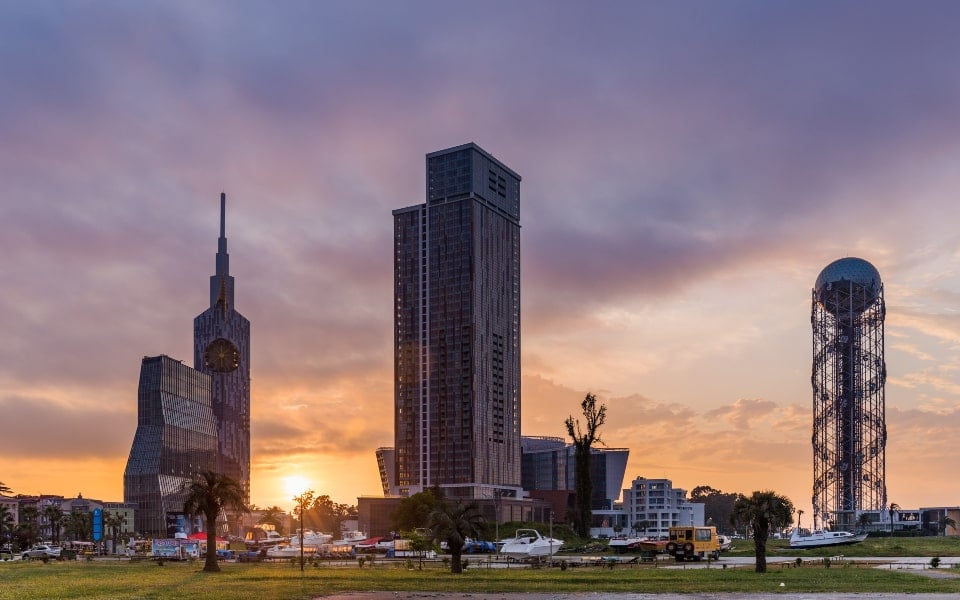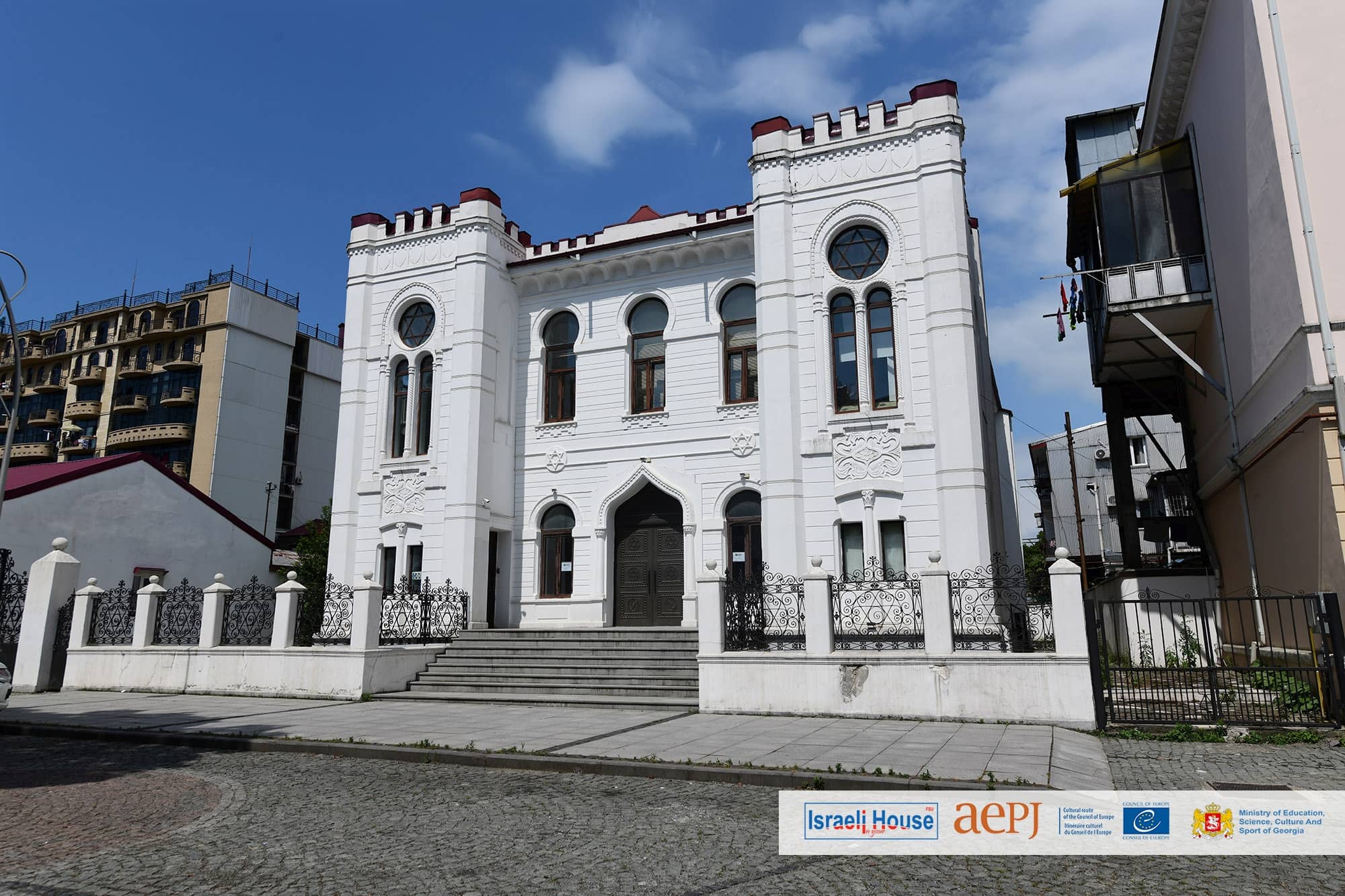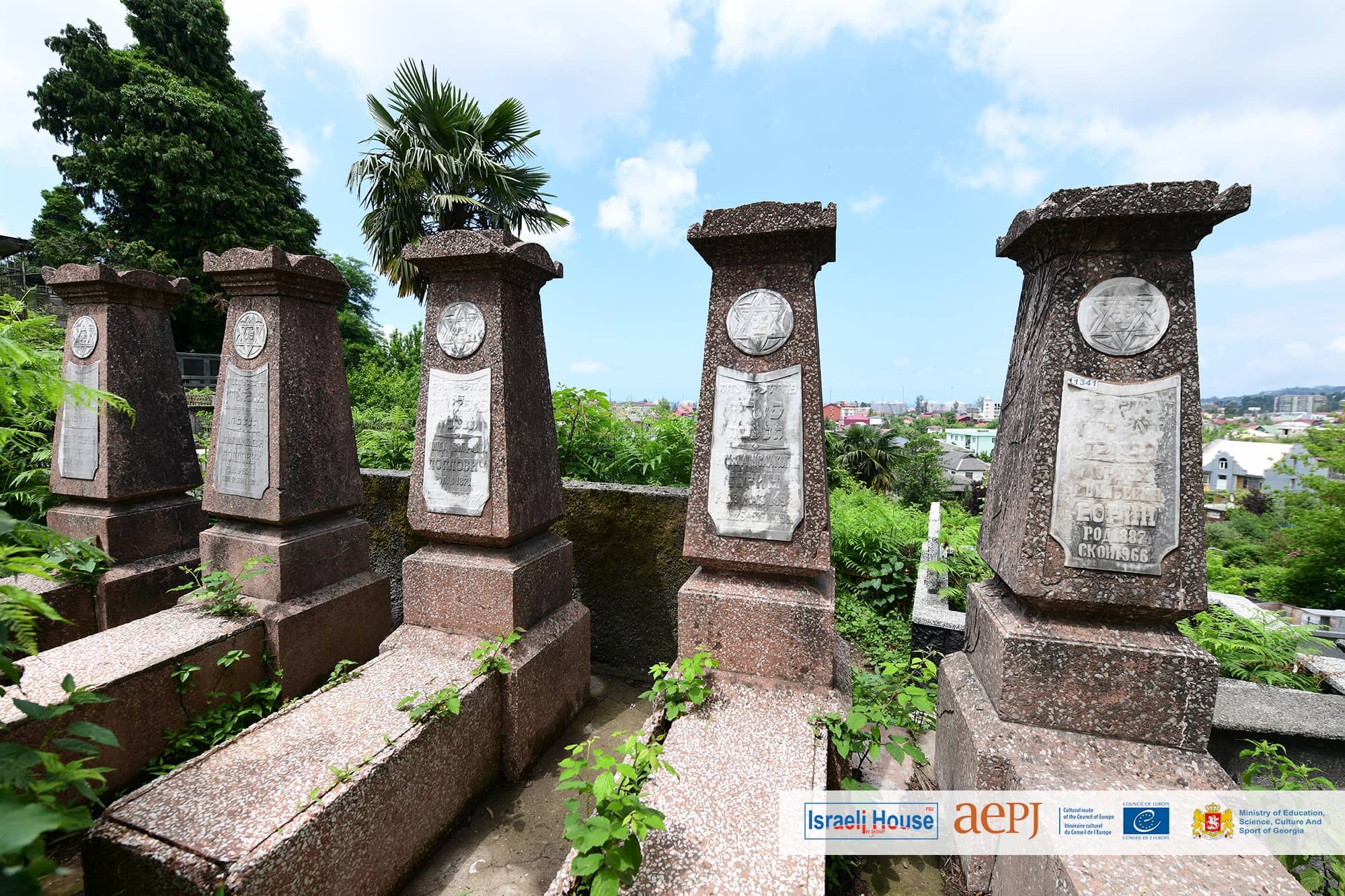Introduction to Jewish Batumi
Batumi, the capital of Adjara, Georgia is a city with an intriguing and vibrant Jewish history. Located on the eastern shore of the Black Sea, Batumi has been home to many Jewish families for centuries. From its earliest days as a major trading port in antiquity to its modern-day role as a center for tourism and culture, Batumi’s rich Jewish heritage still remains evident throughout the city today.
This article will explore Batumi’s historic Jewish quarter and important cultural sites related to Judaism, such as synagogues and cemeteries. We will also look at famous figures from this period who made their mark on the city’s history—from rabbis to writers—as well as contemporary Jews who have lived or died here in recent years. Finally, we will take a look at how Batumian Jews have contributed to local life through their food, music and arts over time. Join us now on our journey through Jewish Batumi!

Jewish Culture and History in Batumi
Early Jewish Life in Batumi
Jews have been living in Batumi for centuries. The earliest known Jewish settlers arrived in the city as early as the 16th century, when it was a major trading port of the Ottoman Empire. These Jews were mainly traders and merchants who came to take advantage of its bustling economy. Life for these early Jewish inhabitants was difficult but also full of opportunity; they had access to education and religious freedom, yet faced discrimination from local authorities due to their religion. Despite this, many Jews prospered in Batumi during this period and made significant contributions to the city’s culture and economy.
Jews in Batumi were mainly traders and merchants who took advantage of the city’s bustling economy. They also contributed to local life through their skilled crafts, such as goldsmithing and carpentry. In addition, they were involved in banking and moneylending, providing vital financial services to the community. Furthermore, Jewish culture had a strong influence on the city’s art scene—from theater performances to music—and many Batumian Jews became famous writers, poets and musicians during this period. All these contributions helped make Batumi an important cultural center for centuries.
Recent and Contemporary Jewish Life in Batumi
Jews have a long and storied history in Georgia, with records of Jewish settlements dating back to the 6th century. The first known Jewish communities were established in Mtskheta and Tbilisi during this time. Over the centuries, more Jews migrated to Georgia from other parts of Europe and the Middle East, with many settling in Batumi by the 16th century. These early settlers mainly traded goods and provided financial services for their neighbors, as well as contributing to local culture through music, theater performances and literature. Today there is still a strong presence of Jews living in Batumi who are proud to be part of its vibrant cultural heritage.
Today, Jews living in Batumi enjoy the same religious freedom and economic opportunities as other residents. The Jewish community is well-integrated into everyday life, with many of its members involved in business, politics and culture. In addition to celebrating traditional holidays like Passover and Hanukkah, there are also a number of organizations dedicated to preserving Jewish culture in the city such as the Batumi Jewish Heritage Center. This center works to promote awareness about local history through exhibitions, lectures and workshops on topics related to Judaism. Furthermore, it hosts various cultural events throughout the year which bring together people from different backgrounds for music performances, art shows and more.
Iconic Attractions and Events in Batumi
The Jewish Quarter in Batumi
The Jewish Quarter of Batumi, Georgia is a charming and historically rich neighborhood that dates back to the 19th century. This neighborhood was once home to a thriving Jewish community that played a significant role in shaping the culture and economy of the city. The area’s architecture is a beautiful blend of European and Oriental styles, which adds to the neighborhood’s unique character. Visitors to the Jewish Quarter can explore its fascinating history, stroll along its narrow streets, and take in the stunning buildings that adorn the area. The synagogue located in the heart of the neighborhood is a must-see attraction and serves as a testament to the community’s enduring heritage and culture.
Batumi Synagogue
Jewish people arrived in Batumi after the Russian-Turkish war in 1877-1878. In 1899, Emperor Nicholas II of Russia granted permission to the Jewish Diaspora to construct a stone synagogue in the city, which was named the “Ashkenazi” synagogue. The construction began in 1900 and was completed in 1904 under the supervision of architect Semion Vulkovich, who was inspired by the synagogues in Amsterdam and The Hague.
The Batumi Synagogue served Ashkenazi Jews until 1923 when it was closed down by the Soviet Government and used for sports organizations. However, it was returned to the Jewish community in 1993, restored to its original function in 1998, and renovated the same year. In 2011, it was granted cultural heritage status. The synagogue is currently attended by about 70 Jews, and it is also visited by many tourist groups from Israel. Beit Chabad Batumi, which is located nearby, offers kosher Georgian and Israeli dishes and is particularly active during the summer influx of Israeli tourists.

Jewish Graveyard in Batumi
The Jewish Graveyard in Batumi is situated in the Beenze district, adjacent to the Georgian cemeteries. The graveyard is a significant historical and cultural site for the local Jewish community. It has been in use since the late 19th century when Jewish people settled in Batumi after the Russian-Turkish war. The graveyard is a reminder of the Jewish presence in the city and contains the graves of many prominent members of the community. Despite its historical and cultural significance, the graveyard has suffered from neglect over the years, and many of the graves have fallen into disrepair. However, efforts are being made to restore and preserve this important site for future generations.

Popular Hanukkah Celebrations
Hanukkah is an eight-day Jewish holiday that celebrates the rededication of the Second Temple in Jerusalem by the Maccabees. During this time, Jews around the world light a menorah and exchange gifts to commemorate the miracle of Hanukkah. In Batumi, Hanukkah celebrations are marked with special events throughout the city such as parades, concerts and parties. The highlight of these festivities is the annual lighting ceremony that takes place on Beach Boulevard where people gather to sing traditional songs and watch as hundreds of candles come together to form a giant menorah. Other popular activities include visiting local synagogues for prayer services, playing dreidel games at home with family and friends, eating traditional foods like latkes (potato pancakes) and sufganiyot (jelly donuts), exchanging presents among loved ones, and more!
Iconic Personality of Batumi
Mr. Rafael Wilschanski
Rafael Wilschanski was born in Radom, Poland in November 1924 but spent his formative years in Batumi. His parents came from the Lubavitch community in Ukraine, and due to their religion, they frequently moved to avoid arrest and Siberian exile. Rafael did not attend a Jewish school but instead went to an underground one in Kursk, Russia, where he remained for six years. During the German occupation of Russia, many Jews were arrested and killed, but Rafael managed to keep in contact with his family, who eventually reunited in Samarkand, Uzbekistan.
They then moved to Poland, where Rafael learned about the extermination camps. The family escaped through Czechoslovakia to Vienna and then went to a displaced persons camp in Germany. Later, they moved to Paris, where Rafael lived for 25 years and assisted the Lubavitch office. He eventually got married and continued to practice his religion. Despite facing many challenges due to his Jewish faith, Rafael remained committed to his beliefs and worked tirelessly to preserve the memory and heritage of the Jewish community.
Summary of Batumi’s Jewish Story
Batumi is an ancient city with a rich Jewish history and culture. From the early days of settlement to modern times, Jews have been an important part of Batumi’s development and growth. Although it has experienced periods of decline, today there are many places where you can explore its unique Jewish heritage including synagogues, cemeteries, popular Hanukkah celebrations and iconic personalities like Rafael Wilschanski who proudly held on to his faith throughout turbulent times. Whether you’re looking for religious or cultural experiences in Batumi or simply want to take a walk back through time, this beautiful coastal town offers something special for everyone!

